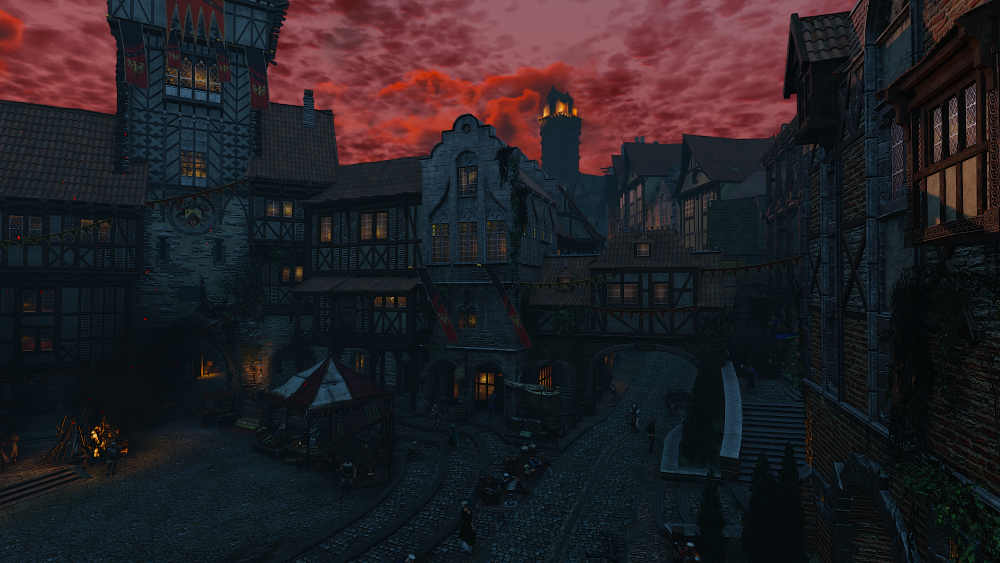The Witcher 3
A narrative-driven action RPG
Awards: Best Writing
DLC
DLC are reviewed separately and do not affect the game's rating.
| DLC | Score | Tech |
|---|---|---|
| Hearts of Stone |
15
|
-2
|
| Blood and Wine |
15
|
-2
|

200 hours

December 2020
Introduction
The Witcher 3 presents a vast world with plenty to do in it. The game is driven by an excellent narrative underpinned by great writing and full of meaningful choices. And there's also gwent.
This is actually the only game so far in which I have started a second playthrough, so clearly I must've enjoyed it!
Story
A significant portion of the game will be spent in cutscenes so it is vital that the game presents an interesting story. It does. While the first couple of hours aren't particularly exciting, it quickly picks up and ends up being very memorable.
The game begins with you in Kaer Morhen, which acts as a kind of tutorial for the game. You then realise that this was just a dream and you're actually in Velen (ugh!). You start by searching for Yennefer, and after asking for help you're asked to kill a monster for them (as usual...). You do this, and then they tell you where Yennefer is, and then just as you set off she shows up anyway so it was actually pointless and you could've just sat around doing nothing and waiting for her to arrive. After a quick encounter with the Wild Hunt, you learn what the objective is for the majority of the game - to find Ciri. Ciri is Geralt's adopted daughter, but is also special for various reasons. The Wild Hunt want to find her, you want to find her, etc. etc.
However, where the game really shines is in the side content. Most of the side content is as good as, if not better than, the main story. I won't go into any details, but the side quests are great and are definitely not to be skipped!
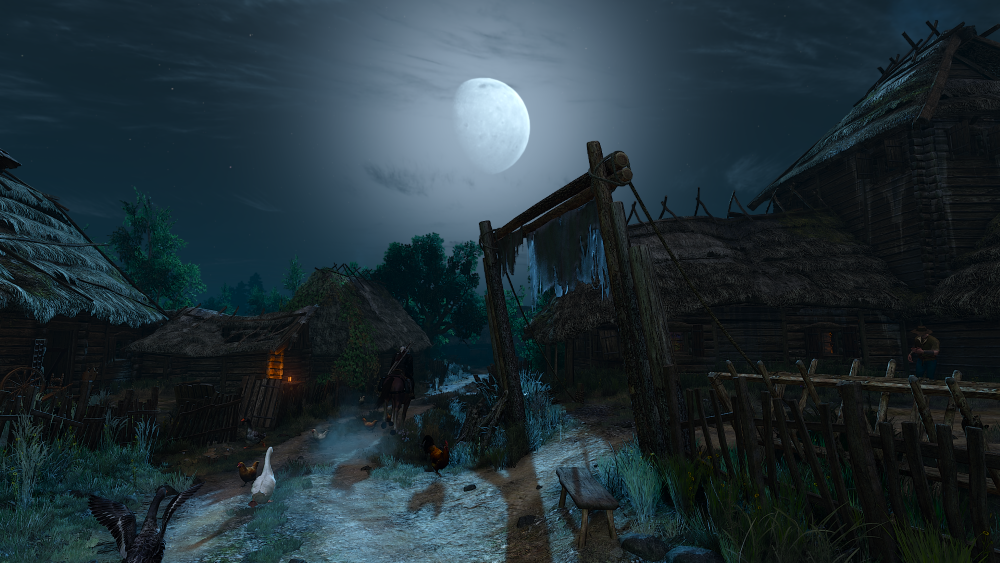
Writing
Writing is often underappreciated but a critical part of a game. Thankfully, The Witcher 3 absolutely nails the writing, and in fact has the best writing out of any game I have ever played.
Rather than me try to describe how good it is, I thought I'd give a couple examples:
The Pan Quest
I love the pan quest. Not because it is actually a brilliant quest in itself, but because how how it demonstrates the quality of writing. This is a quest where, gameplay-wise, you walk into a house and grab a frying pan. That's literally it. But good writing can turn anything that would be boring into one of the game's most well-known and well-loved quests. Watch the pan quest.
Trolls
There are a few different trolls in the game and they are all so funny. Just give it a watch yourself.
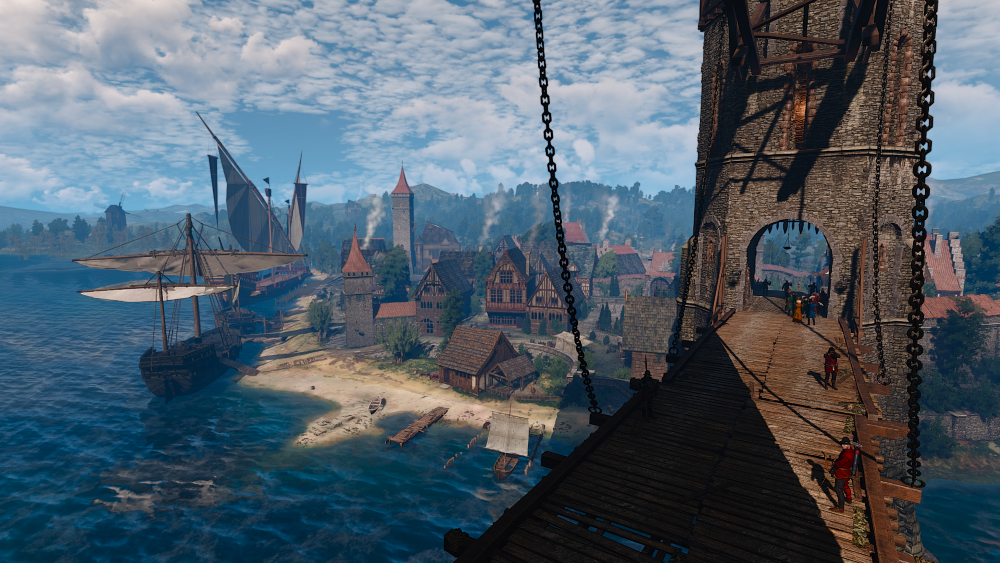
The World
The Witcher 3 presents a world that is alive. While sparsely populated, throughout the world there are plenty of things to do and each area feels like it has its own distinct identity.
At first, you will be in Velen. This is right in the middle of the war, and is a horrible place by design. I saw a comment on Reddit by u/Clyzm which said "Coming off a decent tutorial, the fact that Velen is the next major area does this game a huge disservice. Aside from a quest chain which everyone knows and loves, I find the entire area to be absolutely garbage. It's dank and dreary, it's filled with nothing but depressed peasants. It has no charm what so ever. Novigrad should have been the game's opening". While I agree Velen is dank and dreary, I do not agree with the assessment that it is absolutely garbage. Velen is this way by design, and it is absolutely brilliant at conveying what it is trying to convey. You are in the middle of a warzone, there are peasants everywhere. It isn't meant to be nice. Furthermore, when you do finally get to Novigrad (Oxenfurt is nice too!), it makes it seem so much better. Just imagine if you went to Novigrad first and then got forced out into the depths of Velen! Yuck!
Next, you head to Novigrad, which is a fairly large city. Novigrad is really well designed, full of wealthy people but also gangs and peasants, and everything in between. There are more wealthy neighbourhoods and poorer neighbourhoods, and the narrow streets always feel alive and interesting. Novigrad is overall a very nice place to be, and there are plenty of side quests to complete within the much tighter and more densely packed space.
Finally, before getting to the ending of the game (which I won't spoil!), you go to Skellige. Skellige is made up of a series of islands and mainly remote clans. It's also much colder. Skellige feels much less explored but still interesting, managing to be distinct from the other locations. May people criticise the game for having too many map marker things to do in the water surrounding Skellige. I agree. My solution: Just don't do them!
There are more locations, but others are either spoilery or are much less important. These locations also vary throughout, and are very interesting. I was very impressed, particularly in my second playthrough, how different these locations felt to each other and how it helps make the world feel alive.
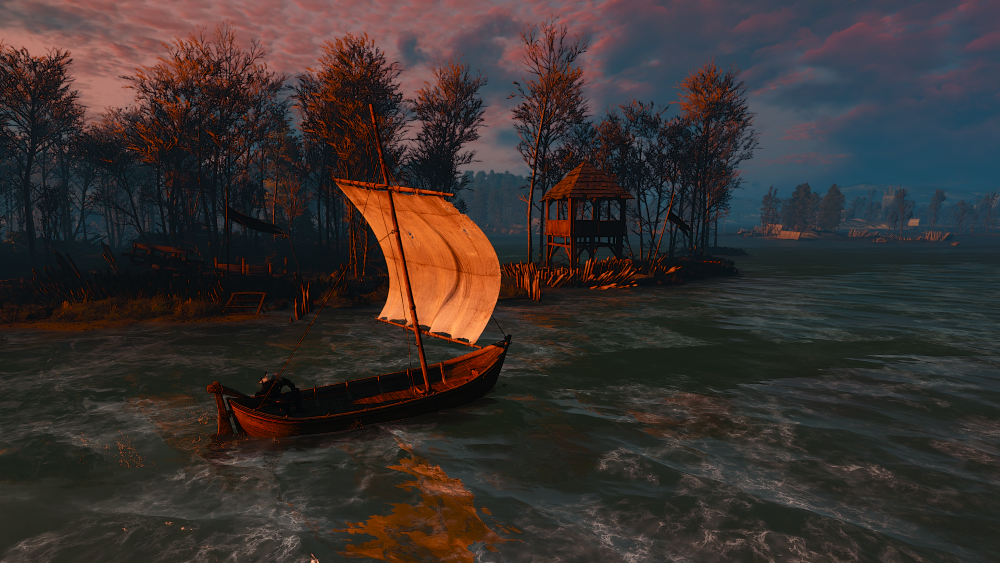
War
I wouldn't usually do this in a review, but I thought it would be useful to analyse a few themes present in the world.
The game is set when a war is going on. There is lots of instability and piles of burning bodies are not an uncommon occurrence. You will often see soldiers, defences and plenty of dialogue regarding it. However, most of the time when walking around you can forget that there's a war going on. While there are plenty of signs of war in certain places, you never see any actual fighting and I think it would've been interesting to have this in the game.
It's also really interesting to have the contrast between a distinctly human thing, war, in a fantasy world where there are lots of monsters around. This is an example of just how much different stuff is going on in the world, providing opportunities for many different questlines.
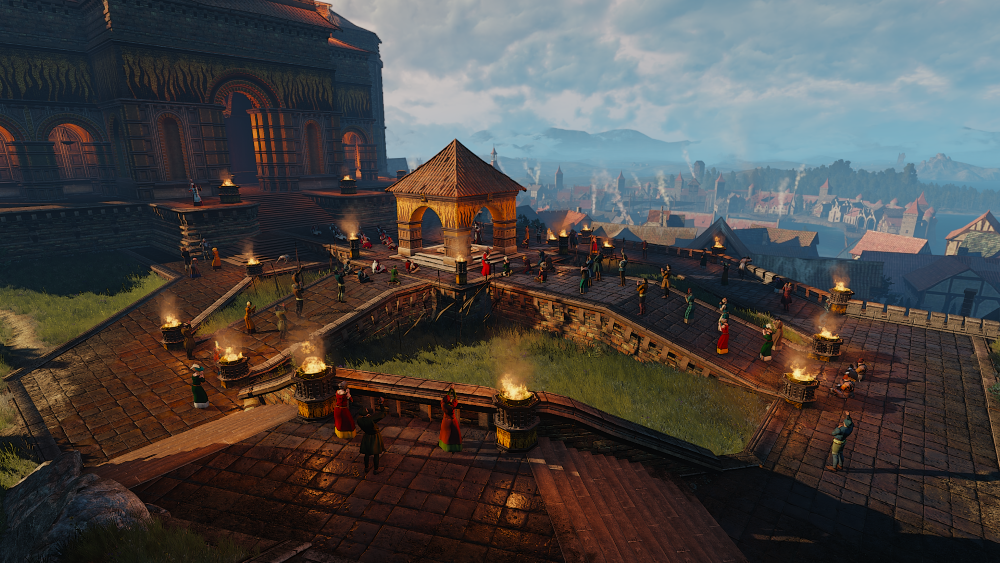
Religion
The Witcher 3 actually explores religion quite a bit throughout the game. Primarily, there is the "Eternal Fire", a religion that many people follow in many parts of the game. It's evident very quickly that religion is abused as a means to gain power. The main church is situated right in the wealthy part of Novigrad, clearly showing that this is more about status and less about faith itself. This is clearly mirroring much of how the church used to operate in medieval times. The church is responsible for killing mages and many other people. Additionally, while the religion officially condemns practices such as prostitution, it becomes apparent that many senior figures within the church are very happy to do this themselves provided they aren't caught.
There are also many other side quests that explore various different religions, some with a few followers and some with just one family. One such example is a quest involving the "allgod". This quest involves some peasants which are worshipping a mysterious voice and offering it scraps of food, when it actually turns out to just be a monster pretending to be a god. This god is abusing these peasants - forcing them to bring food when they have none, or threatening to curse the land forever. However, the most surprising thing is that when Geralt reveals to them that this 'god' is just a monster, the peasants do not seem to care. They continue worshipping it, and get very upset if you end up killing it. I think this reflects how some people practice religion - even if something was to be blatantly disproven, they will continue worshipping it because they feel empty without it. Faith must be based on evidence, otherwise it can lead to either of these two scenarios, or worse.
Finally, it's important to note that Geralt is always given a choice. Geralt is a naturally skeptical character, but as the player you are always given an opportunity to express an opinion on the matter and act accordingly. Take one quest where some bandits were destroying religious shrines. While I agree with their motives, I ultimately decided that they were destroying other people's property so decided it was not okay. You may have a different opinion and The Witcher 3 will let you make those choices and respect your decision.
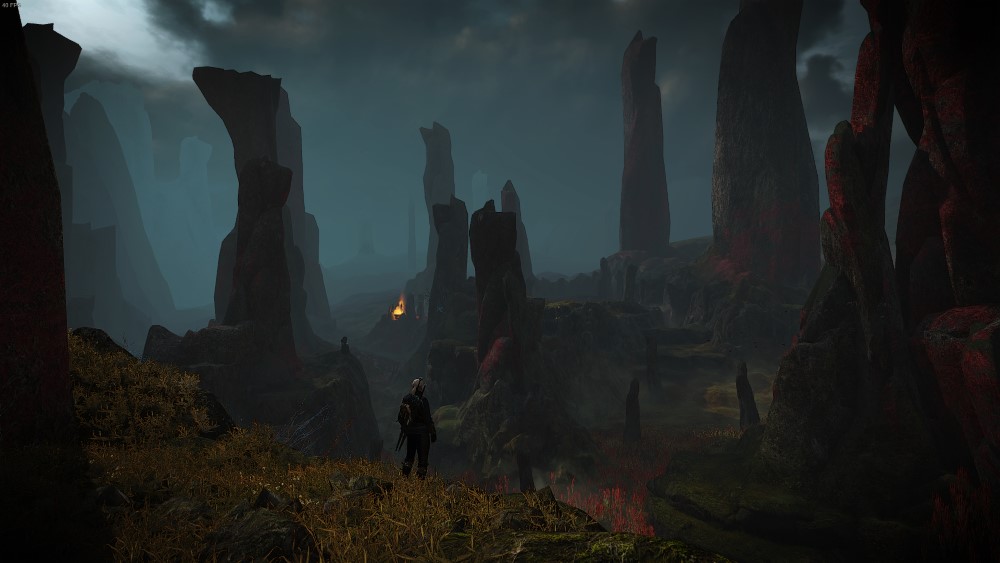
Exploration
The Witcher 3 presents an opportunity for great exploration, but requires the player to very deliberately seek out the exploration aspects of the game. Even then, more innovative design choices could've been used to further enhance the exploration.
In my first playthrough, I didn't do much in terms of exploration and instead opted to follow the quest markers on the minimap. However, you miss out so much if you only do this. In the next-gen version, they have added an option to hide the minimap except when using witcher senses (holding right-click). I enabled this in my second playthrough and it was great. I also tried to use it sparingly, ensuring I'm looking at the world itself rather than constantly staring at a minimap in the top corner. Also, getting lost is great. There are some areas which quests will never send you to, and these areas can be very interesting. Don't treat the world as if it's an obstacle in the way of you getting to another quest marker, take it in because it is very well done.
However, as I have alluded to, this is fundamentally an objective-driven map-marker game, which does come at the expense of exploration. I will discuss this further in the "Weaknesses" section.

Combat
While nothing special, the combat is quite good. On my first playthrough, I played on "Story and Sword!" difficulty, however in my second playthrough I have increased the difficulty to "Blood and Broken Bones". Given I am never particularly interested in combat, this is a somewhat good sign. While combat does mostly revolve around using quen (a sign that grants some invulnerability) and getting a few hits at a time, it is engaging enough to not be boring and also not frustrating. If you're primarily looking for great combat then play a different game, but if you're motivated by a great story then the combat won't let you down, and is very helpful for pacing.
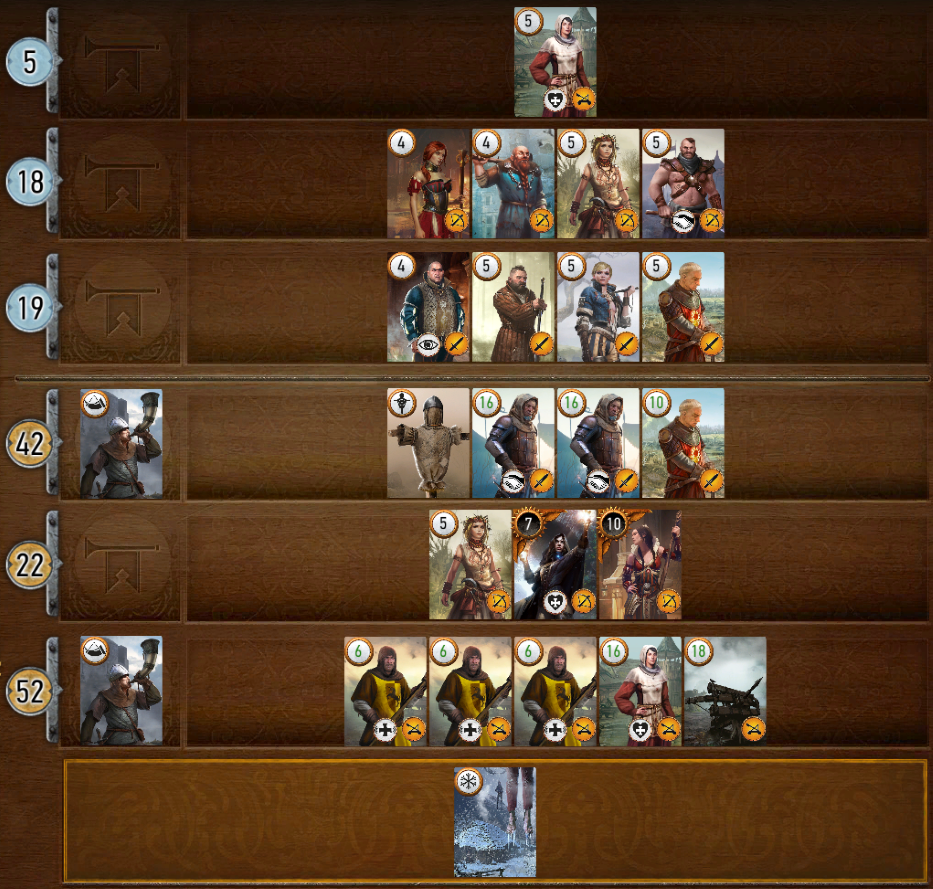
Gwent
Gwent is the card game in The Witcher 3. Most of the NPCs know how to play it and have their own decks ready to play. It's a collectible card game, meaning throughout the game you collect cards to improve the quality of your deck. This is why it's important you start early with gwent, as otherwise you will have a worse deck than your opponents.
On my first playthrough, I tried gwent a couple of times and didn't get the hang of it. I decided that I didn't enjoy it and that was fine - I had a great time on my first playthrough. However, on my second playthrough I gave it at shot. And wow I'm glad I did.
People often joke that the rest of The Witcher 3 is just a side quest to playing gwent, and there is some truth to that. You will be surprised how fleshed out gwent is, given it's only a small part of the whole game. Most merchants and innkeeps are 'gwentable' (sorry), and there are special quests where you can play more difficult opponents and be rewarded with a rare card. While there is a lot of luck involved, it is a very rewarding game and collecting cards to build a better deck was never boring. There is just enough tactics for it to feel rewarding but not so much that it is particularly difficult...
...once you understand how it works. I struggled with gwent quite a lot initially, it took me 5-10 matches before I won a single one. It is quite unintuitive when you first encounter it, but it does become easier. I would recommend reading a guide so you know what you're actually doing. Also, CDPR, please at least make the tutorial guy nice and easy!
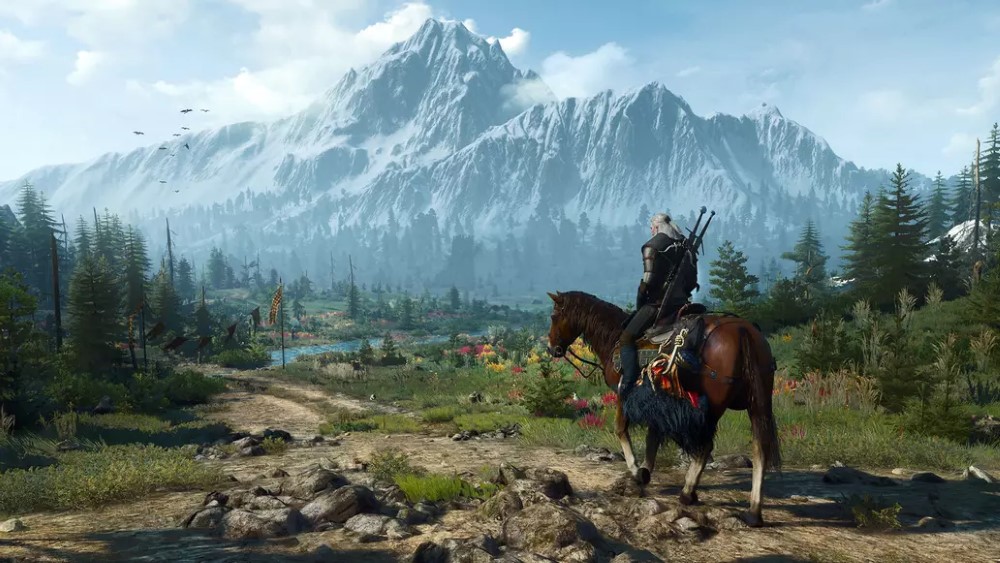
The Next-Gen Update
While the next-gen update brings lots of quality of life and graphical improvements, I didn't notice much of a difference on PC (however I did have a 2-year gap between playthroughs!). The game does look decent and is fairly polished, however don't expect the next-gen update to transform the game! That said, it is a great excuse to play the game again!
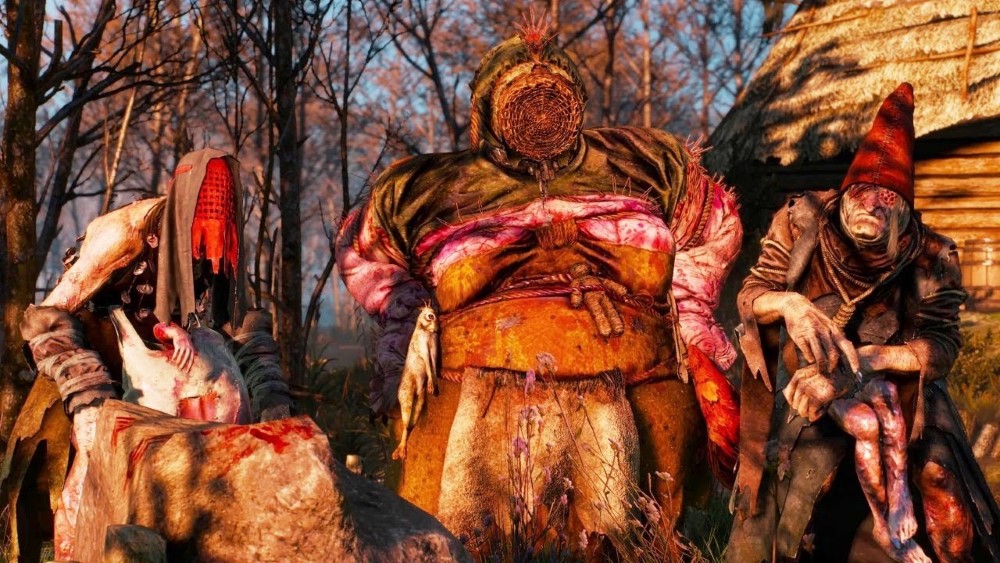
Choice & Replayability
If you ask someone why they love The Witcher 3, you'll often hear people refer to the amount of choice offered in this game. This is a stark contrast to CDPR's next game, Cyberpunk 2077, which involves significantly less choice and lots of fake choices.
There are multiple quest lines throughout the game, each with many different endings. This means there are multiple different aspects to which ending you get.
However, these decisions are still few and far between. What really sets The Witcher 3 apart is the side content. Surprisingly often the side quests will offer the player a choice which will affect the quest, making everything you do seem more meaningful.
It's both this, and the fact that I really enjoyed the game the first time around, that led me to begin a second playthrough. I would never usually play a game for a second time (I have plenty of games I have never played for the first time!) but I have thoroughly enjoyed it and would definitely recommend if you enjoyed it the first time around. There's lots more to explore and do, and I found I discovered lots of details in the story and side quests that I hadn't quite appreciated the first time around.
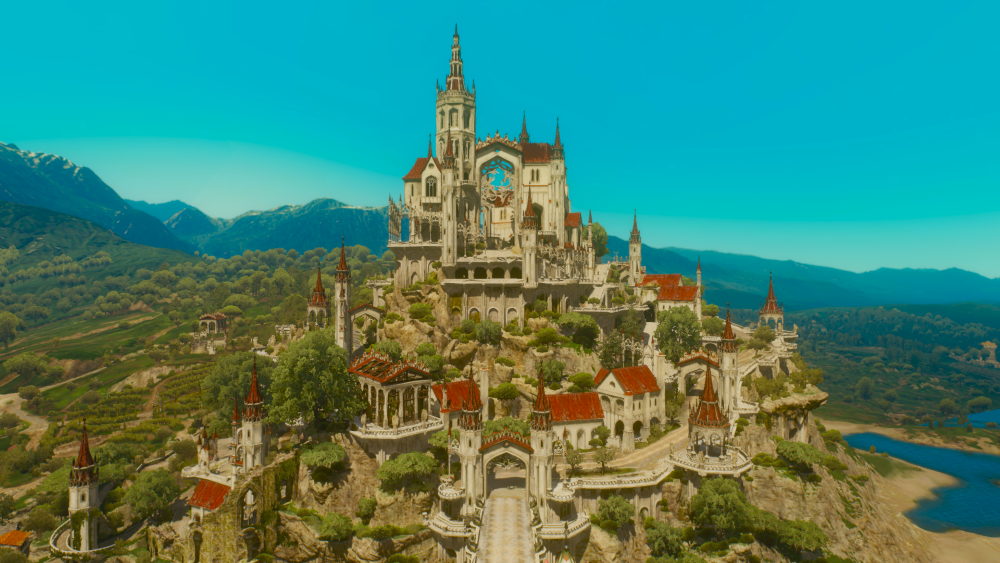
DLC
The Witcher 3 has two DLCs: Hearts of Stone and Blood and Wine. I would highly recommend picking up these with the base game, and playing Hearts of Stone after you finish the main story, then finally playing Blood and Wine.
To find out more, click the links to view their reviews. I review DLC separately, and they do not factor into the review score of the base game.
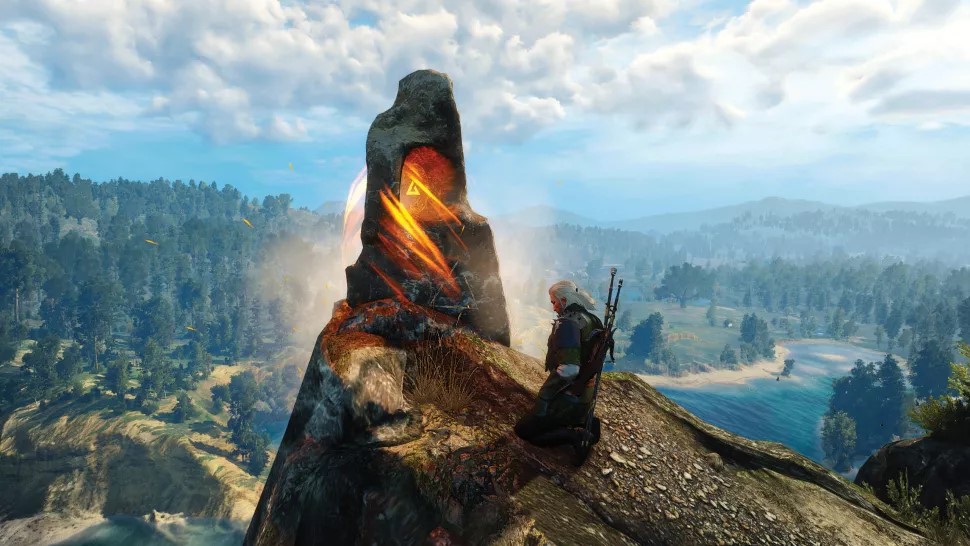
Performance & Bugs
Performance is good but not excellent, I am able to reach above 60 FPS on decent settings. I did not have ray tracing enabled, and I do not recommend enabling it as it has a big performance impact for very little gain.
I encountered a few bugs, but not too many, and certainly not any major game-breaking ones.
For a more thorough analysis, check out Digital Foundry.
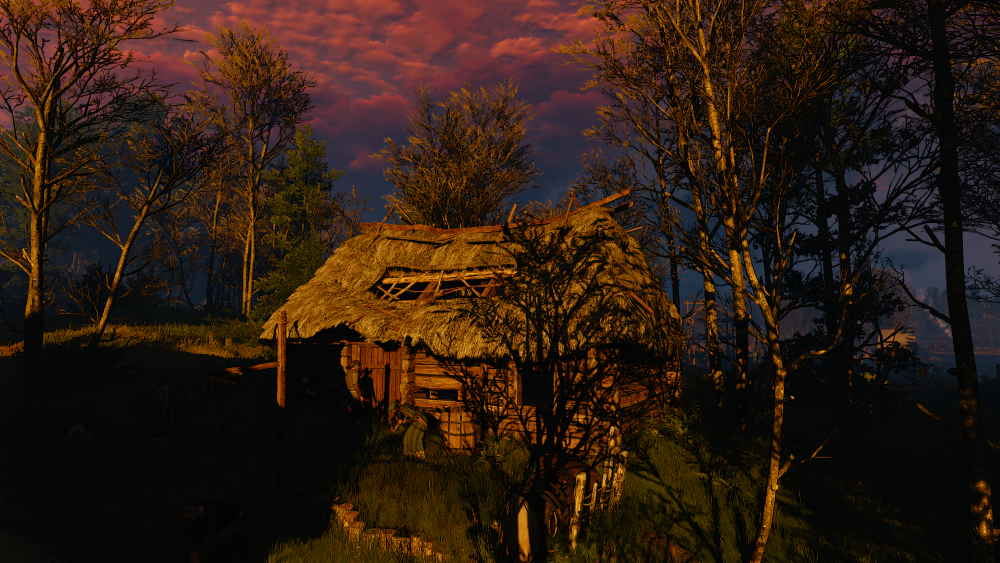
Weaknesses
Now for the bad bits!
Map Markers
As I have stated earlier, The Witcher 3 is still fundamentally a map-marker objective-driven game. On the side of your screen, a minimap tells you exactly where to go and some text tells you exactly what to do. This encourages the player to blindly follow what the game is telling them to do without engaging further with the world.
But since the game was built with a minimap and quest objectives in mind, it's not as simple as just disabling these features, as it will lead to a frustrating experience. It would be nice to see more innovation in this space as more games switch over to more organic exploration which is so rewarding.
Fast Travel
Moving around the world just isn't that interesting, and CDPR knows it. That's why they've put fast travel signposts all around to allow you to skip having to walk from one side of the map to the other. As with map markers, fast travel removes some of the immersion of the game and is the wrong solution to the problem "traversing the map is boring".
Thankfully, in my opinion, CDPR have done a much better job in Cyberpunk 2077. While that game still has fast travel, I never used it since traversing the world was much more enjoyable.
Combat
I know I said the combat isn't that bad, but it's also not that good either. If you're looking for a game with great combat, then this isn't it.
Roach
While Roach is a great horse, Roach can be SO ANNOYING sometimes. Whether that's calling him and him getting stuck, or riding and Roach just forgetting how to turn corners properly, or just generally not doing what you ask. This is also somewhat true of the player, but to a lesser extent. Controlling Geralt is not instant, and can be a bit annoying. You also can't jump in combat. It's things like this which aren't game-breaking, but are just a bit annoying.
Menus
There's a lot going on in the game, and that means a lot of menus. As in, probably too many menus. Not only does this reduce the immersion, but it can be overwhelming and confusing to navigate. Ultimately, it meant I didn't engage with many of the game's systems because navigating the menus felt like a chore.
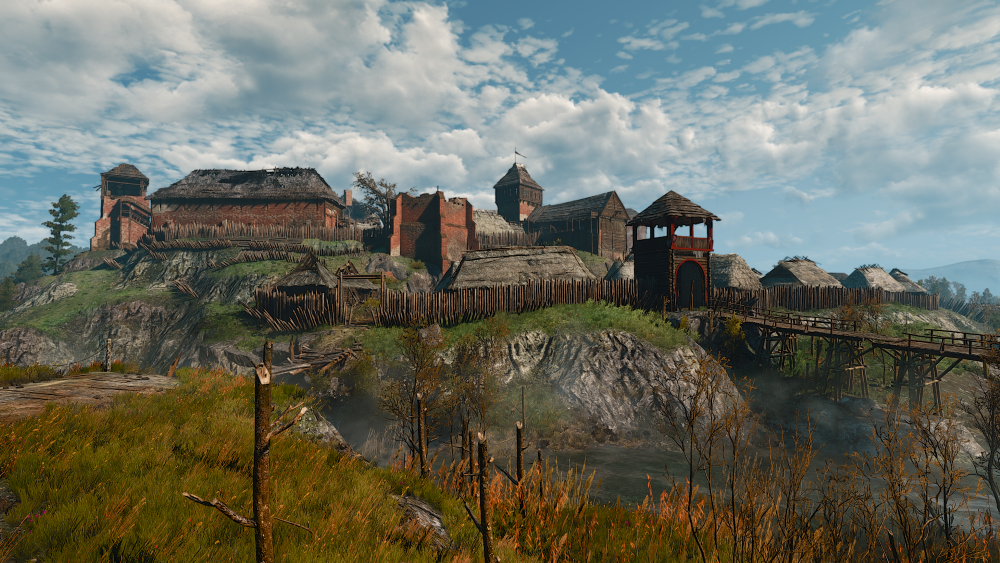
Conclusion
When I was thinking about how to summarise The Witcher 3, what came to mind is just how well-rounded it is. With my second playthrough in particular, I have come to realise just how many different systems there are in the game. While it remains a fundamentally map-marker driven game, it strives for so much and executes it so well, which is why I have reviewed The Witcher 3 so highly.
What to know before jumping in
So you've decided to pick up the game. What should you know before jumping in?
Give gwent a shot
It's difficult at first, but it does get easier once you get the hang of it! Gwent is a really great game and often overlooked (such as by me on my first playthrough).
Do the side quests
As I've already said, the side content can often be even better than the main quests! While the witcher contracts and scavenger hunts often aren't that exciting, a lot of the side quests are interesting and well worth doing.
Hide the minimap
In the settings menu, you can set the minimap to hide unless you are using witcher senses. I would recommend enabling this option and then being diligent about your use of the minimap, as it will make the game much more immersive. Try to look around the world itself to find things, rather than just looking up into the corner to find it on the minimap.




